Alright, Captain America.
Once, one of my professors at uni went on about good ol' Steve Rogers as being the pure symbol of American idiocracy and overblown capitalism. Just an angry, angry rant that went on for a long time.
I sat there just thinking, “Well, maybe that guy should read more comics.”
It’s an easy misunderstanding to make of him. Captain America is a comic of ideals confronted, not ideals being sold. A symbol of propaganda that’s reframed to reflect modern unquietness.
Steve, the OG, is that scrawny kid from Brooklyn who got juiced up and tossed into the deep end of the 20th century’s worst conflicts. The “do right, even if it costs you” guy. The symbol of the "propaganda" is an American reject to begin with. Then you have Sam Wilson, a guy standing with a legacy that people keep telling – and yelling – is not his. And there's more, infinitely more of them out there in the Marvel Universe. Captain America is a comic that proves the importance of their existence at all times – more often than not, despite the actions associated with the flag in the colourful uniform.
I’d say this article is everything I didn’t say in that class, but forget that guy. These are my recommendations of insanely awesome and masterfully done modern views on Captain America – only for you!!
Captain America by Ed Brubaker

I remember, like many I'm sure, being a happy 16-year-old kid getting knocked out of my seat by The Winter Soldier MCU movie. That was it, right? That’s how Marvel movies should be. I knew it was based on Brubaker’s work, and even though I had started devouring comics by then, I had this weird fixation that I was only supposed to read this run when I had it complete. I had almost all of it, except for one deluxe hardcover that was out of print in Brazil for years.
So there they stayed, for so long. I would always look at them on my shelf, pick one up, and flip through the pages. I would see amazing panels like the one above and think, “This is gonna be my favorite Marvel comic ever.” But never read them. (I know it’s weird collector behavior, but if there’s one place people will get me, it’s here at Walt’s!)
So, they stayed there up until – I kid you not – the pandemic hit. By that point, I said, “Well, now or never,” and ordered the last deluxe edition for way more than any normal person should pay on the free market. (Here at Walt’s, you won’t make that mistake.)
I read the whole decade in a day.
And that’s the reason I shared my one embarrassing comic reader shameful gap, only to tell you not to do the same. Just hop in. This will fly by, and here’s the reason: Brubaker is a master of two very hard things.
One is the language of modern comics. He takes the cinematic appeal of modern panelling and turns it into what could be lessons in comic book classes. The art flow and dialogue choices work like a time clock in narrative timing. It goes “tick, tick, tick, boom”, and that’s the only (albeit dumb) way I can describe it to you. A masterclass in detaining and releasing (heh) that I will forever shove in the face of my pretentious writer colleagues when they say stupid things like “comic books are easy to write.”
The other is how delightful Brubaker is at marrying character development with carefully placed plot curveballs. And for what is essentially meant to be an espionage political thriller set in the middle of 2000s America, it’s just perfect.
Getting that Captain America is – or more like should always be, as in my personal statement – a political thriller about the danger swimming in the gap between idealism and symbolism is one thing. But making it this fun and this relevant in that United States? Boy oh boy, that’s another task.
Brubaker’s Steve is a soldier always fighting with the differences between the idealism he was supposed to represent and what that idealism ended up representing. The comprehension that these are two different things – and the decision to push forward. Like, it really pushes.
This is the period where Bucky, the symbolic future of America that was taken away, becomes the Winter Soldier, the reality of symbolic corruption in a very cool, very badass uniform. This is where Steve deals with the Civil War. This is where Steve goes, and Buck has to stay. This is modern Captain America lore, everything you’ve heard about it.
Here's how you can collect Captain America by Ed Brubaker:
In the Omnibus line:
- Captain America By Ed Brubaker Omnibus HC Vol 01
- Captain America Omnibus HC Death Captain America
- Captain America Lives! Omnibus HC
- Captain America: The Trial Of Captain America Omnibus HC
- Captain America: Return Of The Winter Soldier Omnibus HC
Most of these Omnis are out of print (I'm sure Marvel will print them again at some point) but the run is being fully collected in the wonderful Modern Era Epic Collection line starting with Captain America Modern Era Epic Collection Vol. 1: The Winter Soldier TP and Captain America Modern Era Epic Collection Vol. 2: Death Of The Dream TP, with more coming as soon as this year.
Also, the first arc is in the digest-size affordable Captain America: The Winter Soldier TP [Marvel Premier Collection] if you wanna just get a taste.
Whatever you do, learn from me: please don’t wait until you have it complete on your shelf. I wish I had more than one day of enjoying this before, poof, it was gone.
Captain America: White by Jeph Loeb and Tim Sale

If you're not ready to jump into any decade-long run of the character, I present to you this graphic novel by the made-in-heaven duo Loeb and Sale, returning to their much-awarded Colors trilogy concept (Daredevil: Yellow, Hulk: Gray, Spider-Man: Blue) to add this war tale about remembrance.
This is a love letter to Bucky from Steve’s perspective (way before his Winter Soldier comeback), and in that, it’s also a look back – almost nostalgic – into simpler times (well, far from that actually), where everything was more black and white, as in villains vs. good guys.
What could be a very silly nostalgic piece rewrites itself as a homage to Golden Age comics and the spirit of good guys doing good. A narrative told from, and about, a guy who essentially refuses to let go of a value – and in that, becomes a symbol of confronting the wrongs associated with that value.
This is a return to core principles that never forgets the character’s place and progression in modern storytelling, as nostalgic love letters often do.
Available in the Jeph Loeb & Tim Sale: Captain America Gallery Edition HC and Jeph Loeb & Tim Sale: Captain America Gallery Edition HC [DM Only]
Captain America: Truth (Truth: Red, White & Black) by Robert Morales and Kyle Baker

I wish I could be linking you to a collected edition, but it’s out of print right now – and this is as evergreen as a title should be. But something this significant cannot be ignored in an article about modern Captain America.
This is the story of Isaiah Bradley, a forgotten Black Captain America. This is by far the greatest comprehension of a character concept and modern relevance ever printed by Marvel. A story about a racist and oppressive America that built itself on the backs of Black people – and has done nothing more than work to erase them.
What does a symbol of national heroism mean in this context? How do we understand the oppression a man in an American flag uniform can bring, and still push forward into a relevant place?
Morales loves superhero comics, loves Captain America, and ultimately makes an argument of love for part of his country – understanding very well that love for a country that refuses to acknowledge the horrible parts it tries to hide is nothing more than fascist propaganda. And that’s what this character’s legacy has always been fighting against.
The story is heartbreaking and heartwarming.
Catch a copy whenever Marvel gets their stuff together and keeps this on shelves everywhere.
Captain America by Rick Remender

Most of Remender’s time at Marvel before his departure feels like little treats made specifically for me. This follows Brubaker’s decade-spanning, successful run and reimagines it into a John Carter of Mars-style pulpy magazine by throwing Steve into Dimension Z – a pocket universe isolated from the rest of the Marvel Universe.
What this does is give Steve a little break from being the constant centerpiece of bigger stories and offers the title a much-needed breath of fresh air. But it doesn’t give Steve peace. He’s forced to reanalyze and rebuild his own symbol in a new revolutionary setting.
This not only reinforces the meaning of Captain America, but propels it into a new decade.
Because then Steve loses his powers. And the shield must go to someone else. And it's no secret (although an unfortunate and unavoidable spoiler) that it ends up in Sam Wilson's hands. This is a clear, obvious path – as in, Sam deserves it – and at the same time, it’s probably the biggest challenge for Captain America's modern lore.
Remender does a great job of giving Sam his due and remodeling the comic into a new, relevant space. I love this period so much. The “legacy” concept is often used in comics, but I especially love when comics are forced to confront the challenges (bigotry, of course) that come with pushing that legacy forward.
Catch that up in Captain America Remender Omnibus HC Romita Jr Cover with the Sam-specific parts collected in Captain America: The Saga Of Sam Wilson TP
Captain America by Nick Spencer
Nick Spencer takes the challenges established by the last run and decides to run with them. Sam is Captain America in a world that doesn’t want him in that role – or simply can’t see him in it. And Steve regains his powers after years of assuming a different role.
The Sam Wilson comic trims the rough edges and works very well in establishing his own corner, with an incredibly fun relationship with Misty Knight (yeah, the one from Luke Cage) and Joaquin Torres (the new Falcon, now also in the MCU). Everything the new blockbuster Cap film got right (among a sea of maybe not-so-good things) comes from this.
Putting Sam directly against Steve at some point also does wonders in giving the character his own missions, goals, and meanings behind taking the mantle. It’s an incredible argument for why Sam Wilson is (also) Captain America. Spencer also remixes some of Captain America’s greatest hits – like the Serpent Society and Cap-Wolf!!!!!
He also gives Steve his title back (to share) in his own new comic – an argument for why both can exist at the same time.
And then comes this:

And then the comic breaks into mainstream news, being replicated and debated everywhere. Along with misunderstandings and straight-up dumb takes, a whole comic gets judged. Everything is framed as Marvel making “the white” Captain America the villain to promote “the Black” new Captain America. And a comic that barely started gets told what it is before it even begins.
And this isn’t just the general media. A lot of fans are quick to judge, impatient in their reactions, and what comes next gets clouded in that judgment.
Let me tell you what Spencer actually does: a political thriller epic that confronts symbolism in modern settings. Translate that to: Captain America comics.
It ends in the Secret Empire line-wide event, and I don’t want to spoil exactly the machinations at play here – but I think, low-key, this is the best 21st-century villain Marvel has created. And a beautiful metaphor for the challenges we continue to face as sane-thinking people in a world clearly reverting back to an unfortunate cycle.
And to be fair, the reaction was a micro version of the wall the company seems to be constantly hitting in the 2020s (and that’s valid for the films as well).
You can get the the whole thing (not just the mainstream news!!) in the
- Captain America By Nick Spencer Omnibus Vol. 1 HC
- (or Captain America By Nick Spencer Omnibus Vol. 1 HC [DM Only]) and
- Captain America By Nick Spencer Omnibus Vol. 2 HC
Captain America by Ta-Nehisi Coates

I’m a huge fan of Coates’ surrealist Civil War novel The Water Dancer, so my expectations for this run were sky-high. Add in the stunning covers by Alex Ross, and the bar was set at a level I don’t think anything could really clear.
But here’s the thing: Coates went a different route than I expected – and that’s not a bad thing. He took over Captain America in the aftermath of Secret Empire. That’s not an easy hand to be dealt. The Steve Rogers that comes out of that story is essentially shattered, his legacy dragged through the mud, and the symbol of the shield more complicated than ever.
Coates doesn’t ignore that. He confronts it head-on, making it a central part of his run. It’s the classic premise of Cap questioning his role in the world – done well, with some old-school noir and espionage vibes, served over a healthy dose of political commentary.
Coates takes the shadowy remnants of American power structures and starts to pick at them, peeling back layers to reveal the uncomfortable truths about nationalism, identity, and propaganda. It’s heavy stuff that reads like a slow-burn spy thriller (and maybe the slow is what gets in the way for me).
In the end, it draws the map of a world that has shifted beyond recognition – and the recovery and rebuilding Steve and his allies are doing to find their place in it.
It's all collected in the Captain America By Ta-Nehisi Coates Omnibus HC
And a Few Other Captain America Ventures...

More recently, the case was made that both Steve and Sam can share the shield in Captain America: Sentinel Of Liberty Vol. 1 - Revolution TP by new-It-guys Jackson Lanzing and Collin Kelly, and Captain America: Symbol Of Truth Vol. 1 - Homeland TP by Tochi Onyebuchi and insanely-gorgeous-needs-to-be-in-an-omnibus art by R.B. Silva. Sentinel is Steve's title, and it's a twisty plot that explores the whole lore of Cap continuity in a very satisfying way. Symbol is Sam's title, dealing with Wakanda's goodness and the very fun implications of the African country opening its borders to immigrants from the United States, with particularly good parallels through the return of relationships with Joaquin Torres and Misty Knight. They all culminate in the Captain America: Cold War event.
Another favorite of mine, J. Michael Straczynski (again, expectations highly impossible to meet), gives his spin on Cap with a story exploring Steve's past and bending time in an interesting (metaphysical) setup for the idea that fascism will always try to come back – and will, and should, always be met with resistance. It's a very interesting way to tell a flashback story that also relates to present issues. Also, there are demons. The first arc is in Captain America By J. Michael Straczynski Vol. 1: Stand TP.



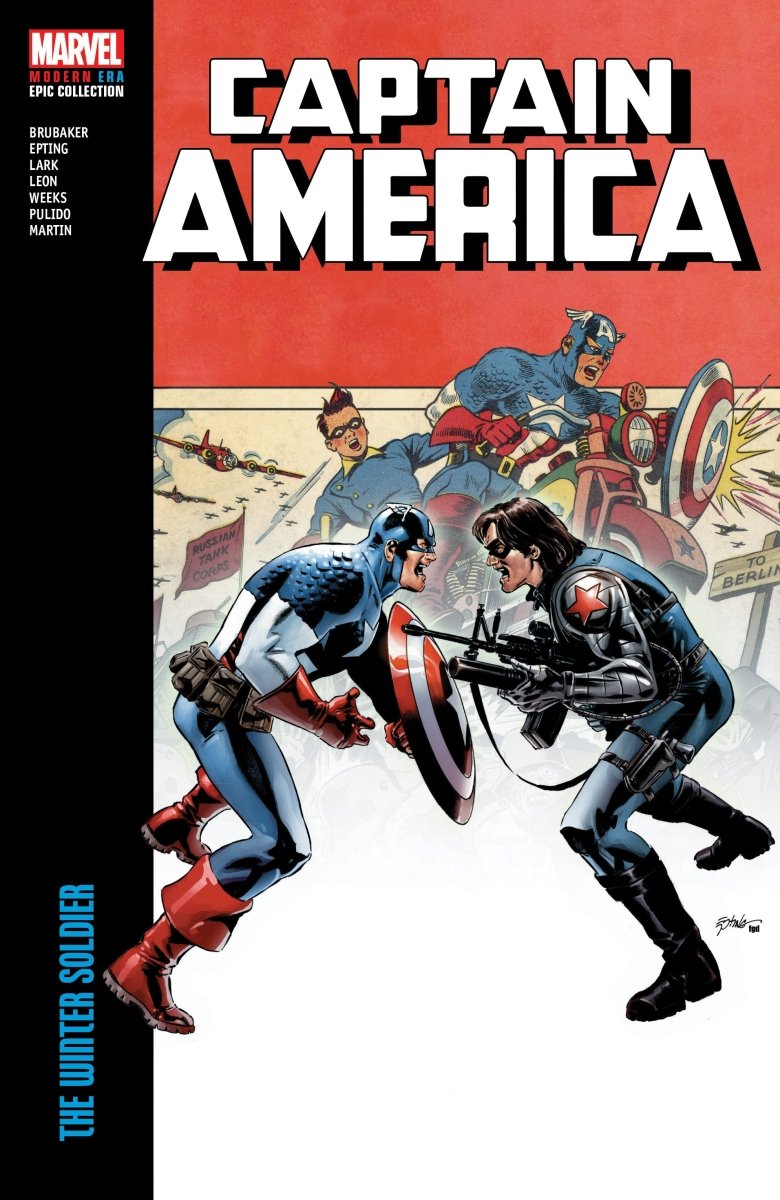
![Captain America By Nick Spencer Omnibus Vol. 1 HC [DM Only] - Walt's Comic Shop](http://waltscomicshop.com/cdn/shop/products/captain-america-by-nick-spencer-omnibus-vol-1-hc-dm-only-670299.jpg?v=1695995879&width=836)
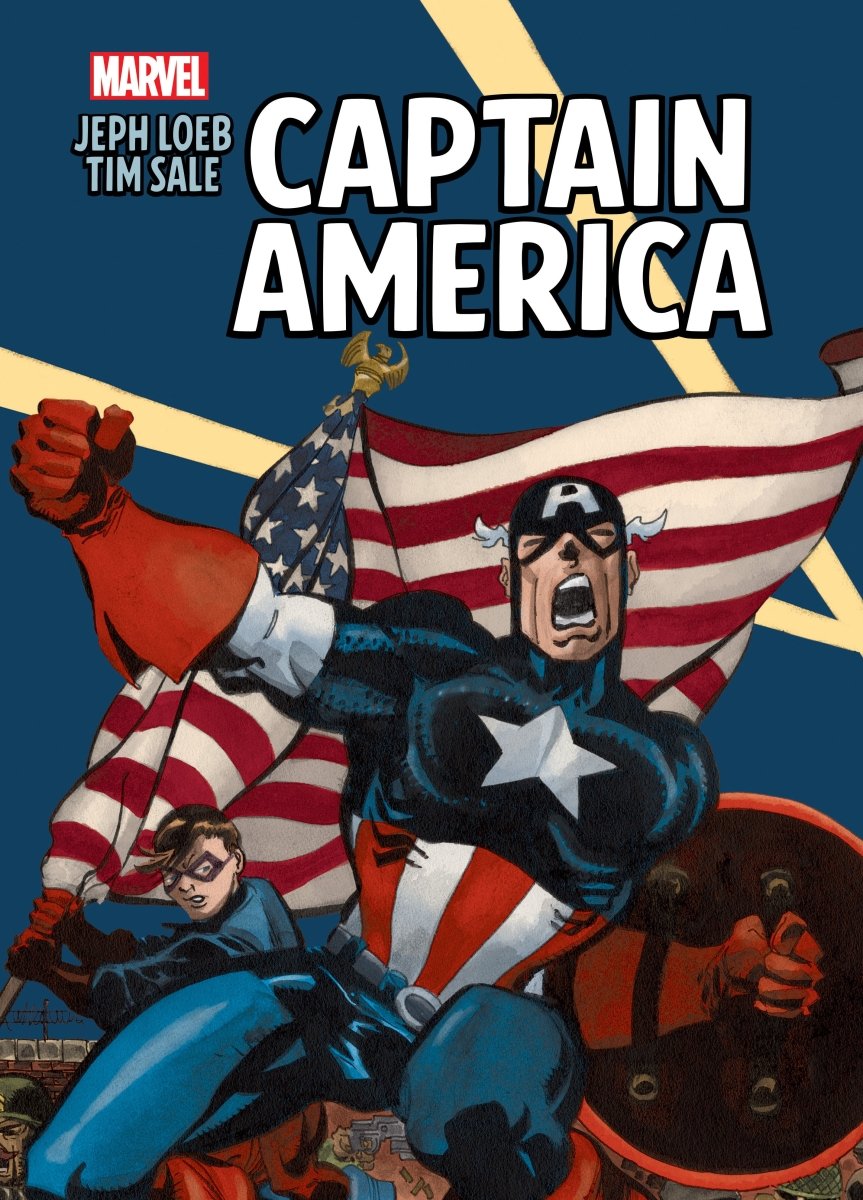
![Captain America Lives! Omnibus HC Alex Ross Cover [2022 Printing] *OOP* - Walt's Comic Shop](http://waltscomicshop.com/cdn/shop/products/captain-america-lives-omnibus-hc-alex-ross-cover-2022-printing-oop-472339.jpg?v=1695995882&width=836)
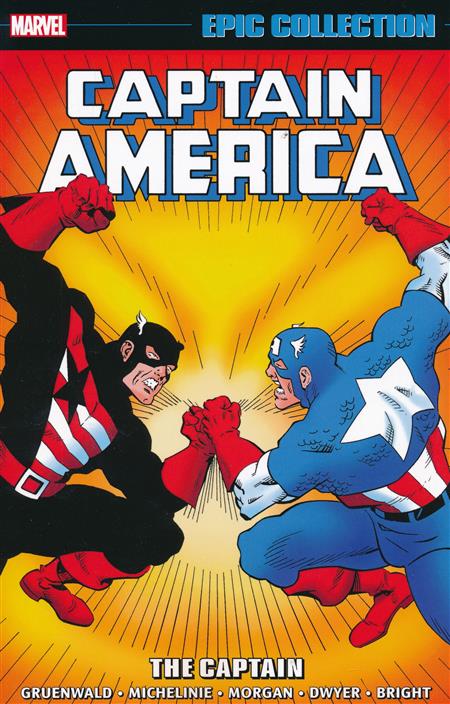
![Captain America Lives! Omnibus HC Cassaday Cover [New Printing, DM Only] - Walt's Comic Shop](http://waltscomicshop.com/cdn/shop/products/captain-america-lives-omnibus-hc-cassaday-cover-new-printing-dm-only-179327.jpg?v=1695995882&width=836)
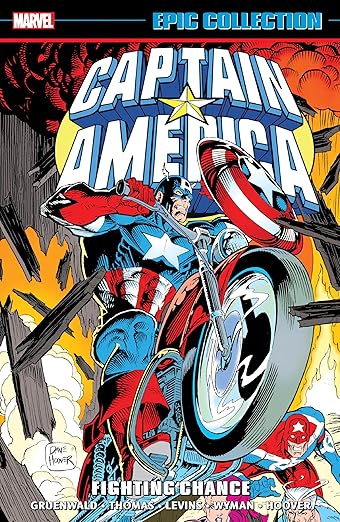
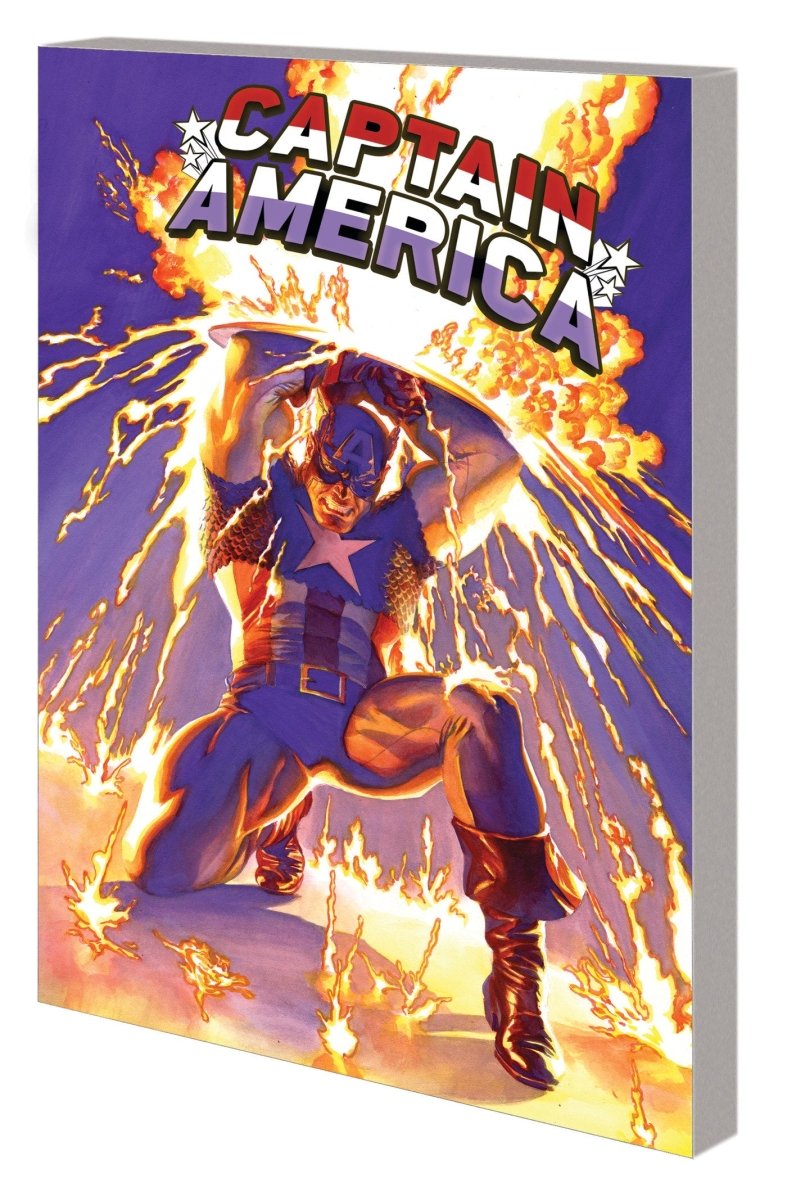
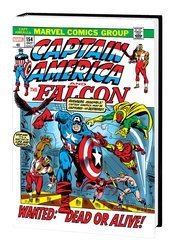
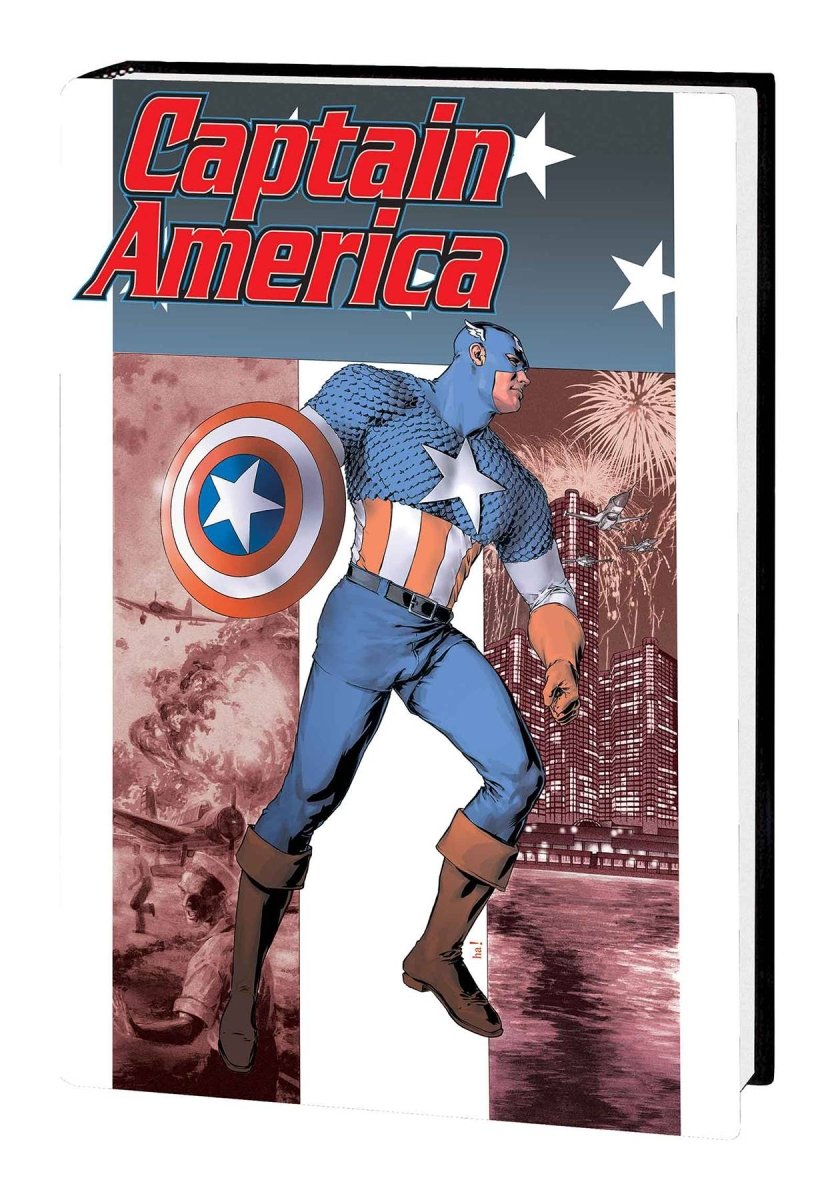
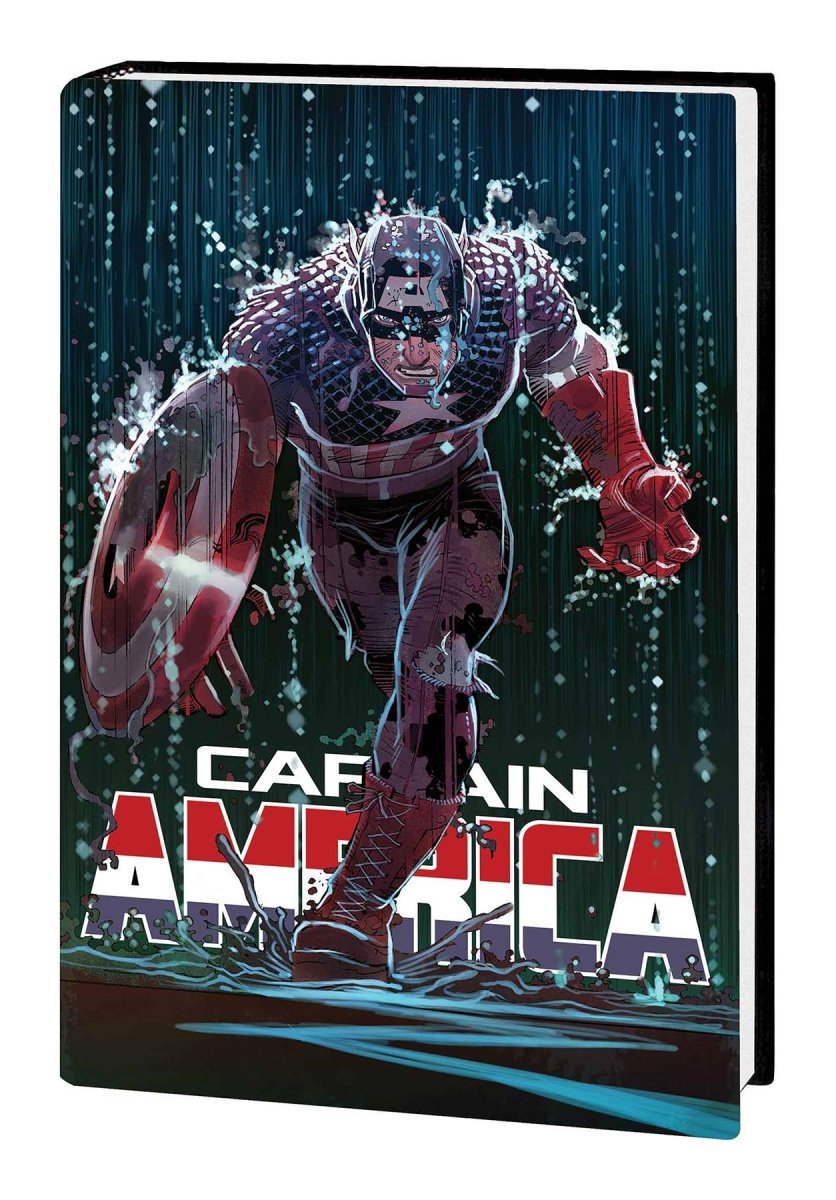
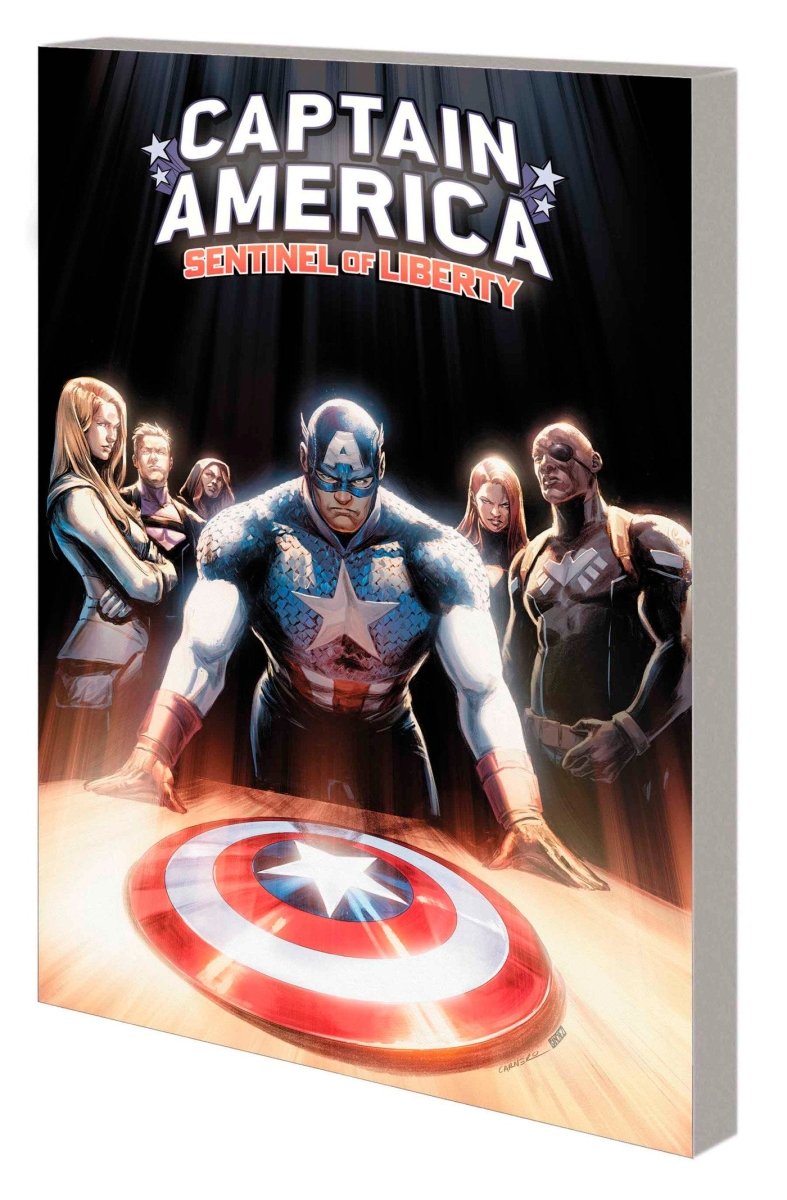
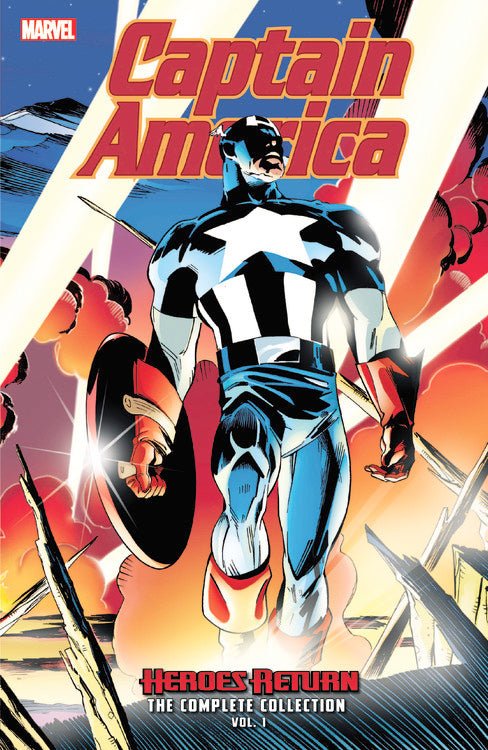
![Captain America Epic Collection Vol 9: Dawn's Early Light TP [New Printing] - Walt's Comic Shop](http://waltscomicshop.com/cdn/shop/products/captain-america-epic-collection-vol-9-dawns-early-light-tp-new-printing-832220.jpg?v=1695995878&width=780)

